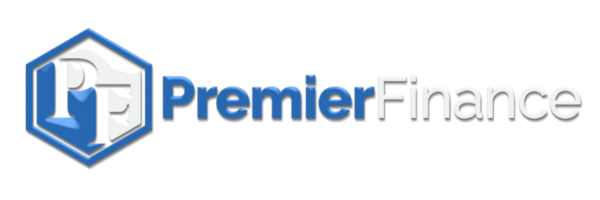If you’ve ever received a call or SMS about a debt you don’t remember, or you’re being harassed for money you thought was long gone — you might be dealing with prescribed debt. This guide breaks down what prescribed debt is, how it works in South Africa, what your rights are, and what steps you should take if you suspect you’re being contacted about a debt that’s legally unenforceable.
1. What Is Prescribed Debt?
Prescribed debt is debt that has lapsed due to the passage of time, meaning the creditor has lost their legal right to enforce payment. In simpler terms, if a debt has gone unpaid for a specific period (typically three years), and the creditor hasn’t taken legal steps to recover it, that debt may be considered “prescribed” under the Prescription Act 68 of 1969.
Prescription is a legal principle that prevents creditors from chasing debtors forever. It exists to protect consumers from indefinite liability and encourages creditors to act within a reasonable timeframe.
2. Which Types of Debt Prescribe After 3 Years?
In South Africa, many common debts prescribe after a period of three years. This includes:
- Credit card debt
- Store cards (e.g., Edgars, Foschini)
- Personal loans
- Overdrafts
- Cell phone accounts
- Medical bills
- Gym contracts
If no payment or acknowledgment of the debt has occurred within a continuous 3-year period — and the creditor has not issued a summons — the debt is legally considered prescribed.
3. What Debt Does Not Prescribe After 3 Years?
Some debts fall under different prescription periods or are excluded from prescription altogether:
| Type of Debt | Prescription Period | Notes |
| Home loans (bond debt) | 30 years | Secured debt |
| Court judgments | 30 years | Already litigated |
| SARS (tax) debt | Varies | Subject to tax laws |
| Municipal debt | 30 years | Rates and taxes |
| Debt with signed acknowledgment | 15–30 years | If you admitted debt in writing |
So, if you’ve defaulted on a home loan, municipal rates or been taken to court, don’t expect those debts to prescribe quickly, if at all.
4. When does the 3-Year Period Start?
Prescription starts from the date the debt became due — typically when the last payment was made, or the last acknowledgment occurred.
However, many consumers mistakenly reset the prescription period without knowing it. Here’s how the clock restarts:
- Making a payment, even if it’s R10
- Acknowledging the debt in writing, email, WhatsApp, or phone
- Entering into a new payment arrangement
- Signing an “acknowledgment of debt” agreement
This is why debt collectors often pressure consumers to say something or make a small payment — because it restarts the clock and legally revives the debt.
5. Why Are You Still Being Contacted About Prescribed Debt?
Even though prescribed debt is no longer legally enforceable, many debt collectors still attempt to collect it.
Why?
Because:
- Most consumers don’t know their rights
- The debt still exists on paper, even if it’s prescribed
- Collectors buy prescribed debt for cheap and hope to make a profit
This is known as “zombie debt collection”, where agencies try to revive old debt by catching you off guard.
In 2015, amendments to the National Credit Act (NCA) made it illegal for collectors to sell or attempt to collect prescribed debt, but many still try. And not all debts are covered by the NCA (e.g., medical debt, gym contracts).
6. What Are Your Rights When It Comes to Prescribed Debt?
According to South African law:
✅ You are not legally required to pay prescribed debt
✅ Debt collectors may not mislead, threaten or harass you
✅ If you raise the prescription as a defence, they must stop collection efforts
✅ It’s illegal for them to sell or reassign prescribed debt under the NCA
✅ If they sue you for prescribed debt, you can raise it as a defence in court
However, you must actively raise the prescription defence. The court won’t assume it’s prescribed unless you state it. Silence can be taken as acceptance.
7. How Prescribed Debt Affects Your Credit Report
Even if your debt is prescribed, it may still appear on your credit report if the original default occurred less than 3 years ago. Here’s how credit reporting typically works:
- Default listings stay on your profile for 2 years
- Judgments remain for 5 years (unless rescinded)
- Sequestration/Rehabilitation reflects for 5 to 10 years
If a debt collector keeps updating the information on your profile, that’s called “re-aging” — and it may be unlawful. You have the right to challenge this with the credit bureaus.
8. What to Do If You’re Contacted About Old Debt
If a debt collector contacts you about old or unknown debt:
Step 1: Don’t acknowledge or admit anything
Avoid saying “I remember that debt” or “I’ll make a plan.” Even vague comments can restart prescription.
Step 2: Ask for proof
Request the original agreement, statement, and last date of payment. They are legally obligated to provide this if they want you to pay.
Step 3: Consult with a debt expert
If you’re unsure whether the debt has prescribed, don’t try to guess. Professional help can make sure you don’t give away your rights.
Step 4: Send a letter of prescription (if applicable)
If your debt has prescribed, you can send a formal notice refusing payment based on the Prescription Act.
9. How a Free Prescribed Debt Assessment Can Help
Prescribed debt laws are complex, and many debt collectors rely on misinformation or fear to get you to pay. That’s why it helps to speak to an expert who understands:
- When a debt qualifies for prescription
- How to communicate legally and safely with collectors
- What documents or letters to send
- How to challenge unlawful listings with credit bureaus
A free prescribed debt assessment will give you clarity, protect your rights, and potentially save you thousands of rands.
10. Common Misconceptions About Prescribed Debt
✅ Credit reports may still reflect the debt, but that doesn’t mean it’s legally enforceable.
✅ Any payment, no matter how small, resets the 3-year clock.
✅ That may be true, but unless you formally raise prescription as a defense, the law won’t assume it.
Conclusion: Knowledge Is Power
Prescribed debt is a powerful legal protection for consumers — but only if you understand and apply it correctly. Don’t let debt collectors pressure you into paying old, uncollectable debt.
If you’re unsure whether your debt qualifies as prescribed, take a few minutes to complete a free assessment. Our team works with prescribed debt experts who understand how the law works and how to protect your rights.

